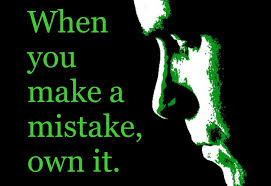It’s that time of year when everyone is looking at their sales numbers and making projections for next year. Yet, too often we fixate on the wrong things to improve our sales results and numbers. It’s time to get real and focus on the right things.
7 Tips to Ensure Your Sales Team is Delivering Real Results
- Hire the Right People. This is the #1 requirement to achieve sales results! Why? People that fit their job have a natural interest in achieving real results. It’s always important to go beyond the interview where they tell you what you want to hear! Use a qualified sales assessment to positively impact your results and bottom line. The right assessment provides you with interview questions and addresses the critical factors necessary for sales results (e.g., compensation, prospecting, closing, building relationships, resourcefulness, etc.). For example, if a person is unwilling to work in a sales commission job, hiring them doesn’t make a positive difference for anyone.
- Coach with Laser-Focused Accuracy. The right assessment tool also provides you laser-like coaching When you address the true issue with low performing salespeople, it’s easier to get real about how they can improve their sales skills. For example, telling someone they need to meet more people when they are already making a lot of contacts won’t make a difference. Instead, focus on coaching steps of how to engage people to determine potential buying interest.
- Focusing on Technology Doesn’t Fix Sales Results. How many times have you believed a new CRM or other technology-based sales system will improve sales results? This is a big, huge illusion. If you don’t have the right salespeople, technology will only make things worse. Your low producers will hide out behind learning the system as an excuse for not initiating the right conversations. The high performers will be annoyed they have to learn another new system.
- Customer Engagement Requires a Process. Are you engaging your customers on a quarterly basis? If yes, they are less likely to stray! Also, when you are top of mind, your customers are more likely to refer you to others. When meeting with the customer, use a scorecard to get real about what you are delivering versus what they need. Design these conversations to uncover new current problems and growth challenges. Provide qualified resources for your salespeople to become valued and trusted advisors. Remember, training is crucial for these conversations to be effective!
- Sales Team Huddles are a Must. If you’re not already doing this…start now! Have a standup huddle each morning for all salespeople. (Yes, stand up…if you sit during the meeting will go too long.) It is harder for so-so salespeople to hideout. It only takes 10 to 20 minutes. During the sharing, focus on progress actually being made and where to focus your attention for better results.
- It’s All about the Fundamentals. Train for the Details. I remember years ago a sales expert told me that you need to learn the details of your products and services to be a successful salesperson. This has made a positive difference for me when closing sales! Learn and teach your systems. Provide weekly training, updates, and stories. You can use the daily stand-up huddle for this too. Remember, successful selling is a lifelong process of learning with consistent reinforcement.
- Acknowledgment Works Wonders. Acknowledge your team, each team member, and your customers often. Share brags with others. Have an up-to-date dashboard showing results readily available. This encourages team support when someone is stuck.
©Jeannette Seibly, 2019
Jeannette Seibly is an award-winning champion for people and results. For the past 27 years, she has guided bosses and teams to excel. Want a stellar 2020? Improve hiring and coaching your sales team. Now is the time to contact Jeannette today for straight talk with dynamic results.
New! Podcast! How to Create Values for Balance and Success
Interview with Katy Piotrowski…how to live an authentic, peaceful life based on creating your values for balance and success.
http://ow.ly/yZoq30q11ai (Anchor.FM)
https://youtu.be/9nt2rHoR4pE (YouTube)










